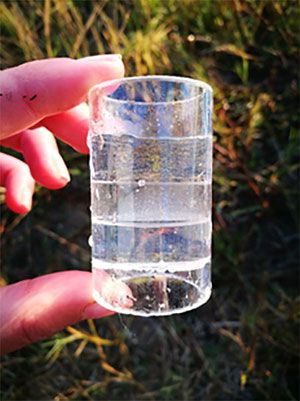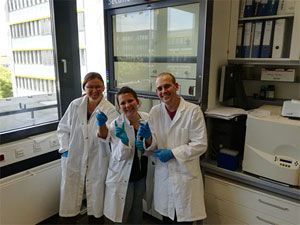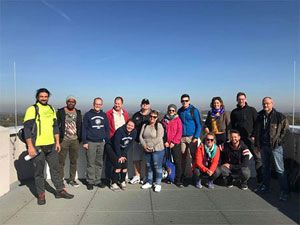
Subscribe & Follow
#AfricaMonth
Jobs
- Contract Lecturer IP and FP Mathematics Johannesburg
- Marketing and Student Recruitment Administrator Centurion
- Lecturer and Module Coordinator (Apparel Production) Pretoria
- Lecturer: Logistics Management Bellville
- Lecturer: Visual Effects (VFX) Cape Town
- Programme Coordinator: Post Graduate Department Cape Town
- Interior Design Lecturer Potchefstroom
- Lecturer: School of Humanities and Social Sciences Durban
- Buildings and Maintenance Officer Durban
- IT Assistant Cape Town
In the news
NWU and Universität Duisburg-Essen develop early warning tool for metal pollution in fresh water
This research achievement is a collaboration between the Water Research Group, the NWU led by Prof. Nico Smit and Prof. Victor Wepener and the Universität Duisburg-Essen’s AquatischeÖkologie (Aquatic Ecology) Group, led by Prof. Bernd Sures and Dr Sonja Zimmerman.
The project is funded by the National Research Foundation and the Federal Ministry of Education and Research.
Prof. Nico Smit says the collaboration was informed by the fact that South Africa is the world’s main supplier of platinum group elements, and some of the most productive platinum mining operations are located in the Bushveld Igneous Complex near Rustenburg in the North West province.
“As with all intensive mining activities, there are always the potential that these activities can result in metal pollution in nearby rivers, thus a proper monitoring mechanism is needed to serve as an early warning tool.”
Following a five-year collaboration, these researchers have now designed and validated a passive sampling device – an artificial mussel – that works perfectly to monitor platinum pollution in freshwater environments.
Their results – which were published in the international journal Environmental Sciences Europe – showed that under laboratory conditions there is a very high correlation between the uptake of platinum in artificial mussels (AMs) and the concentrations in the water.
“These laboratory tests were also validated under real field conditions in the North West province’s Hex River, clearly showing the suitability of AMs for South African rivers. These AMs are inexpensive, easy to make and have the potential to become the tool of choice for water managers worldwide,” says Prof. Smit.
“An additional benefit of the AM is that it allows the determination of bio-accessible metal fraction in water bodies in an ethical manner without using animals, which in the past has been the main standard operating procedure.
“According to the recent International Union for Conservation of Nature report almost one third of all freshwater biodiversity faces extinction, with pollution being one of the main driving factors. Taking this into account, together with human health issues related to water pollution, this new tool comes at just the right time,” says Prof. Smit.



- Online webinar: Navigating economic stagnation in South Africa15 May 16:45
- Prof. Linda du Plessis rebukes Dawie Roodt’s university closure comments15 May 15:48
- African historian Prof. Toyin Falola receives honorary doctorate13 May 12:34
- North-West University medical school named the NWU Desmond Tutu School of Medicine24 Apr 14:49
- Improve your academic writing skills with SADiLaR’s free tools15 Apr 14:47














